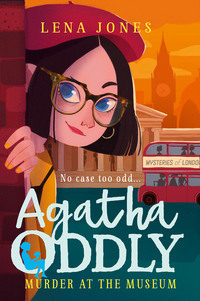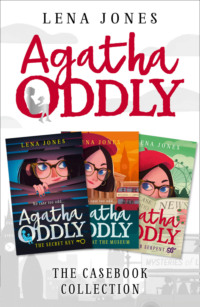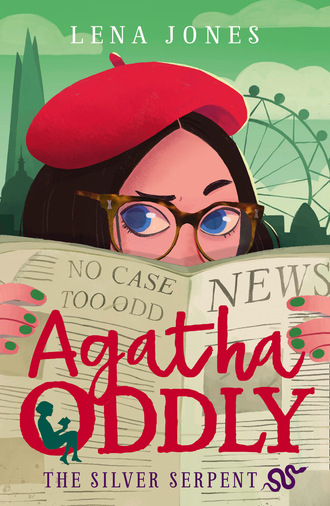
Полная версия
The Silver Serpent

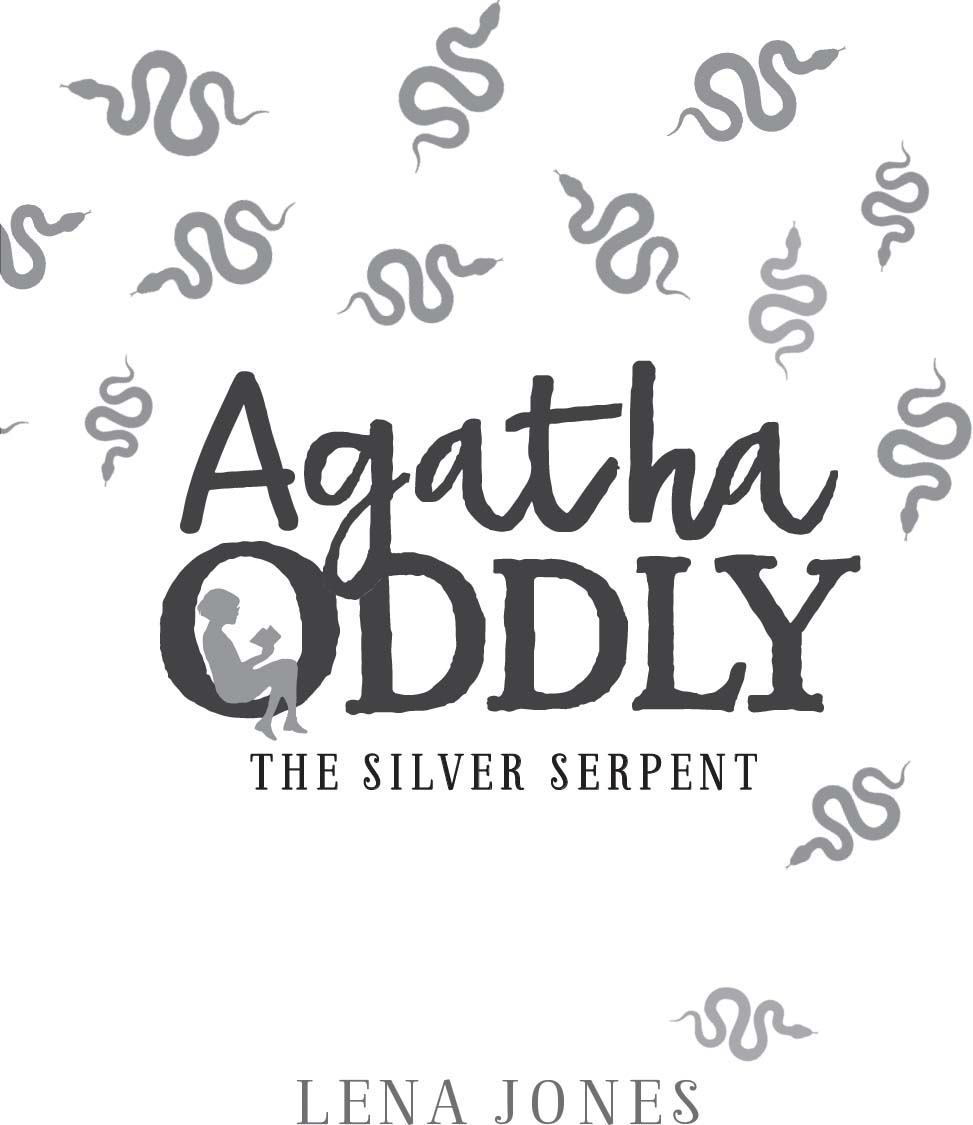

First published in Great Britain by HarperCollins Children’s Books in 2019
Published in this ebook edition in 2019
HarperCollins Children’s Books is a division of HarperCollinsPublishers Ltd,
HarperCollins Publishers
1 London Bridge Street
London SE1 9GF
The HarperCollins Children’s Books website address is
www.harpercollins.co.uk
Text copyright © Tibor Jones 2019
Cover design copyright © HarperCollinsPublishers 2019
Cover illustration by Alba Filella
Tibor Jones asserts the moral right to be identified as the author of this work.
A catalogue record for this book is available from the British Library.
All rights reserved under International and Pan-American Copyright Conventions. By payment of the required fees, you have been granted the non-exclusive, non-transferable right to access and read the text of this ebook onscreen. No part of this text may be reproduced, transmitted, downloaded, decompiled, reverse engineered, or stored in or introduced into any information storage and retrieval system, in any form or by any means, whether electronic or mechanical, now known or hereinafter invented, without the express written permission of HarperCollins.
Source ISBN: 9780008211950
Ebook Edition © September 2019 ISBN: 9780008211967
Version: 2019-06-17
The students at Corpus Christi Primary School, Brixton, south London The coolest Agatha fans anywhere
Contents
Cover
Title Page
Copyright
Dedication
1. A Chance Encounter
2. The Beginning
3. Introductions
4. All the Signs Point to Nowhere
5. Into Thin Air
6. Dead Ends
7. A Message From Beyond the Grave
8. A Larger Puzzle
9. An Absence of Lead Paint
10. Rathbone Mansion
11. A Knotty Problem
12. A Snake in the Grass
13. Out with the New, In with the Old
14. The Space Above
15. Will the Real Arthur Fitzwilliam Please Stand Up?
16. Secrets and Lies
17. Chocolate Cake for Breakfast
18. Impossibly Familiar
19. The Silver Serpent
20. An Unexpected Visitor
Acknowledgements
Keep Reading …
Read all the Agatha Oddly adventures
About the Publisher

‘You’ve been gazing at that painting for at least ten minutes.’
Liam appears at my side, head tilted in front of Vincent Van Gogh’s Sunflowers. It’s a Tuesday in November, and we’re in the National Gallery on a school trip. ‘You’d think it had one of those hidden pictures in it, the way you’ve been staring at it,’ he continues. ‘You know – the sort you can only see if you look at it for long enough?’
‘It’s just my favourite, that’s all,’ I say, smiling at him.
‘I can tell!’
‘Mum loved it too. She used to bring me to see it whenever we were passing this way.’
‘How many times have you visited this place, just to behold its beauty?’ He says the last bit dramatically, sweeping his arm round with a flourish, as if he’s reciting a very corny poem.
I laugh. ‘Quite a lot!’ Then I pause. ‘It looks different today, though.’
‘How do you mean?’
I point to the vase, where the name ‘Vincent’ appears in blue script. ‘Well, that bit’s the same shade as normal, but the flowers –’ I gesture to the yellow petals – ‘they’re paler and clearer, if that makes sense.’
‘Less orangey-brown?’ suggests Liam.
‘Exactly!’ I smile at him. Nobody gets me like Liam.
Liam shrugs. ‘Perhaps they’ve had it cleaned.’
‘That would make sense … although I was actually wondering if it was more to do with where it’s hanging now. I mean, they’ve moved it from its usual spot, to make it part of the Van Gogh exhibition, so maybe the lighting’s different.’
My friend Brianna arrives at my other side. Her hair is still a sedate brown rather than her preferred blue – Dr Hargrave, our headmaster, has told her she mustn’t dye it an ‘unnatural’ colour again – only now it’s shaved everywhere except on top. She has delicate features and the contrast is almost shocking. Weirdly, though, it’s a good look for her.
‘Is it time to go home yet?’ she asks, studying her nails. They’re black with pale-green skulls.
‘Don’t think so,’ says Liam. ‘We’ve only seen one room so far.’
My backpack’s on the floor. Brianna crouches down and starts rummaging in the front pocket.
‘Hey, what are you doing?’ I ask.
‘Looking for that ultraviolet torch thing. Did you bring it?’
‘It should be in there,’ I say. ‘What do you need it for?’
‘My nails are meant to glow,’ she replies.
I fish in the pouch of my bag and pull out the little torch, which is the size of a pen. ‘Here you go.’
‘Thanks,’ Brianna says. She shines it on her nails and we all admire the gleaming skulls.
‘Er … please can I have everyone’s attention for a moment?’ We turn round as Mrs Shelley, our art teacher, is trying to make herself noticed. All her clothes are drab browns and greys, and even her hair is an indeterminate sort of browny grey. She’s like a washed-out, watercolour version of a person. I find myself wondering what Agatha Christie’s Poirot would have made of her if he’d met her. I imagine my favourite detective nodding wisely and saying, ‘Non, mam’selle, there is no such thing as a really calm sea,’ in his Belgian accent. And maybe he’d have been right – perhaps Mrs Shelley does have hidden depths.
‘Er … everyone …’ she says again in her whisper of a voice, ‘can we move on now, please?’
I glance round at the other students. They must have finished looking at the paintings some while ago, because they’re all gathered round the benches and windows, chatting and chewing gum. One group of students are all busy doing each other’s hair, while some others are sitting on the floor, sharing things on their phones and laughing loudly. No one is listening to Mrs Shelley.
Brianna’s lost concentration again, and is aiming the torch at a landscape on a side wall. Then she points it at the next painting and starts moving the beam along, one picture at a time, until she rounds the corner and reaches Sunflowers. Until this one, the beam has been invisible, but now there’s something that shouldn’t be there. I move in closer.
‘Look,’ I say, pointing to a small mark that’s appeared, just below Van Gogh’s signature.
Liam frowns. ‘It looks like an “A”.’
‘It is an “A”, I say. ‘But what’s it doing there?’ I take a picture of it, while it’s lit by the ultraviolet beam. The letter is quite ornate.

‘Maybe it’s a mark made by the gallery … their way of marking against theft?’ he suggests.
‘You really think they’d write on a priceless painting?’ I ask.
Brianna shrugs. ‘It is in invisible ink.’
Suddenly there’s a loud clapping and we all go quiet, our heads swivelling towards the source of the noise. A tall, slender man with dark, greying hair, brown eyes and an expensive-looking navy suit is standing there. This is Lord Rathbone, father of Sarah, my archenemy at school. She’s standing next to him, a smug smile doing nothing to improve her habitual air of privilege and arrogance.
Normally, I love visiting the National Gallery, and I’d been looking forward to the Van Gogh exhibition for months. But it turns out that Sarah’s dad is a gallery patron and the fact that this trip had been arranged was entirely thanks to him, so all the pleasure’s been squeezed out of it like water from a mop.
Lord Rathbone smiles at us and I wince unexpectedly. I have an unpleasant image of him catching small prey in that sinister grin. He’s like one of those toothed Venus flytrap plants.
‘Please do your teacher the courtesy of paying attention to her words of wisdom,’ he says. ‘We are, after all, here to learn.’ His voice has the oily tone of someone who’s used to getting his own way.
Brianna leans in to my ear. ‘Ugh, he’s even more patronising than his daughter,’ she whispers.
I nod and murmur, ‘At least now we know where she gets it from.’
‘He gives me the creeps,’ she replies.
‘Me too,’ I agree.
Mrs Shelley clears her throat and says … something.
‘What’s that, Mrs S?’ asks a boy.
‘I can’t hear her,’ says another. ‘Can you?’
Liam leans in to my ear. ‘She said it’s time to move on to the next room.’
‘How do you know?’ I ask him.
‘I’ve been learning lip-reading. I thought it might come in useful.’
Lord Rathbone claps his hands again and shouts, ‘Silence!’ He’s gone an impressive deep red, which I’d like to inspect more closely. I think it’s shade #9A0000 in the hexadecimal code used to identify precise colours on computers, but it’s hard to tell without getting nearer to him than would be polite.
‘I will not tolerate this insolence!’ he exclaims. ‘You will listen to your teacher with respect!’ Everyone falls silent and he nods to Mrs Shelley, who blushes.
‘Er … right, thank you, Lord Rathbone. Now listen carefully, everyone. We’re going to move on to the next room, where I’d like you to look out for the painting we studied in class, Bedroom in Arles, which was, of course, one of Van Gogh’s own favourites. Remember what we discussed – the flattened perspective and the lack of shadows, and try to compare the style with the Japanese prints we looked at, and which the artist used for inspiration. Decide how successful you think he was. And don’t forget to take notes, for discussion in class next time.’
We all traipse dutifully through to the next part of the exhibition. Brianna, Liam and I walk along together, and Brianna asks, ‘What did she say? Something about a Japanese prince?’
Liam laughs. ‘Don’t you remember those prints we looked at, to see how Van Gogh tried to get a similar effect in his work?’
She shakes her head. ‘I don’t really listen in art. I mean, I like looking at the pictures and stuff, but Mrs S is so dull that I always end up switching off.’
‘Did you know she’s actually a lady?’ I ask her.
‘Well, I didn’t think she was a bloke, did I?’
‘Agatha means as in “her ladyship”,’ says Liam.
‘Seriously?’ says Brianna. ‘She’s not half as arrogant as the Rathbones, though, is she?’
Liam laughs again. ‘No one’s half as arrogant as the Rathbones.’
‘Shh!’ I warn them. Sarah and her dad keep walking past, like guards on patrol.
We can’t get near Bedroom in Arles, so we stand chatting at the back of the crowd. But after six or seven minutes staring at the back of people’s heads, I grow restless.
‘I’m going to have another look at Sunflowers,’ I tell my friends. ‘I can’t work out what that letter A’s doing on there. Can you cover for me?’
‘How are we expected to do that?’ asks Brianna.
‘Say I’ve gone to the loo?’ I suggest, then as soon as I see the Rathbones chatting to our art teacher, I sneak out and return to the previous room, which is now empty. Except it’s not quite empty – there’s a boy standing in front of Sunflowers. He glances up as I approach.
‘I love this work,’ he says in a familiar way, as if we’re friends.
‘Mmm, me too,’ I say.
‘I always look at Sunflowers when I come to the gallery.’
‘Mmm, me too!’ I really must think of something else to say. ‘It’s one of my favourites,’ I add, and my gaze flickers over him, taking in details:
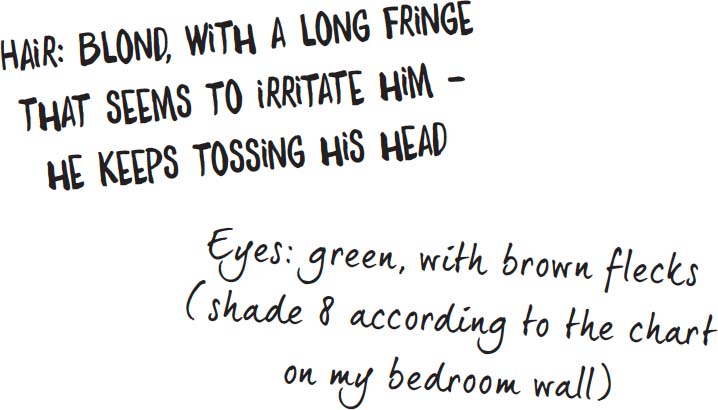
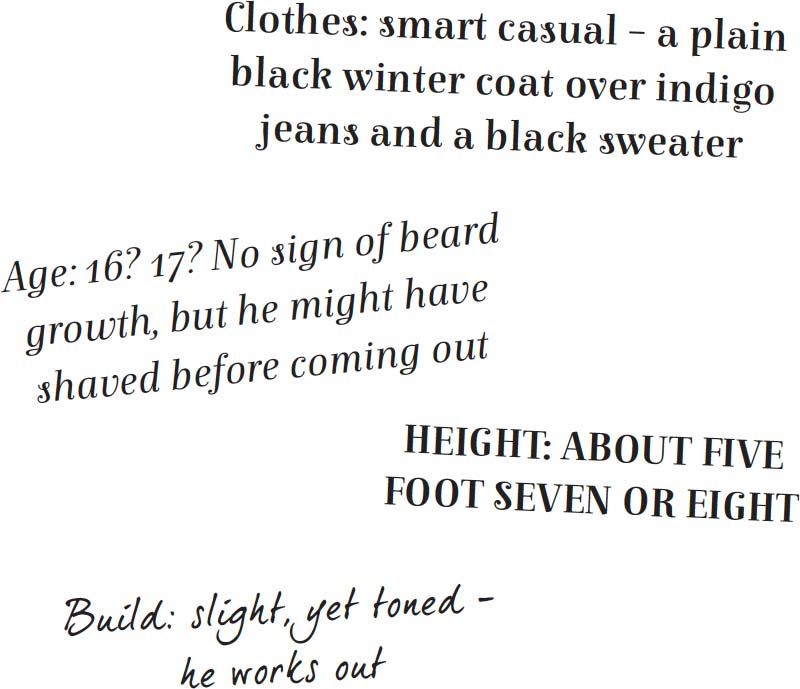
I realise he’s watching me with a smile, and I feel myself blush.
‘So, you’re a fan of Van Gogh too?’ I say, changing the subject.
‘I’m a fan of art in general,’ he says. ‘I’ve studied it for years. Did you know that there were two series of sunflowers, painted by Vincent for his friend and fellow artist Paul Gauguin? He was going to hang them as a frieze round the walls of Gauguin’s room in the Yellow House in Arles.’
Actually, I do know that, but before I get a chance to respond, the boy is walking over to the next painting along: Wheatfield with Cypresses.
‘Look at the impasto!’ he exclaims.
I know that this means having several coats of paint layered one on top of another, to build texture, so I can at least nod. Van Gogh is said to have been one of the first painters to use the technique.
‘You can really feel the movement of the trees and clouds, can’t you?’ he asks.
‘You really can,’ I say, excited to find someone who shares my love of Van Gogh’s art. I’ve never met anyone else who’s known what ‘impasto’ means. ‘I’ve been having to keep my hands behind my back, so I don’t touch the surface. It’s so tempting.’
He glances round, one hand hovering just in front of the painting’s surface. ‘Shall we?’
‘No!’ I cry.
He bursts out laughing. ‘I wouldn’t really. It might be brittle, after all these years – I don’t want to be the boy who breaks one of Van Gogh’s masterpieces. I’m Arthur, by the way.’
‘Like Hercule Poirot’s friend!’ I say. I can’t stop myself blurting it out.
He smiles and bows. ‘Captain Arthur Hastings, at your service.’
‘You know the books?’ I say excitedly.
‘Know them? I’ve led my life according to the belief system of Hercule Poirot. I like to pretend my parents named me after his friend – but it was actually after some boring great-uncle or other.’
‘Well, I can do one better than that.’ I grin. ‘I’m named after the author herself,’ I announce. ‘I’m Agatha.’ We beam at each other. ‘So … do you work here?’ I finally ask.
‘I wish! No – I’m doing work experience at a printer’s nearby. I come in on my lunch hour, or if it’s quiet and there’s nothing for me to do at work. I’m not allowed to operate the machinery or anything, so when they’re busy I just get out from under their feet.’ He shakes his head in wonder, staring at Wheatfield with Cypresses. ‘Just look at that craftsmanship. It’s exquisite.’
‘It really is,’ I say. We stand side by side in silence for a moment. There’s something awe-inspiring about getting as close as this to a famous painting.
‘Well, I guess I’d better get back to the others,’ I say eventually.
He nods. ‘And they might have started to miss me at the printer’s. I’m not really supposed to go wandering off.’
We wave goodbye to each other and I walk quietly back through to the next room. Although it was great meeting Arthur, I wish I’d had another chance to look at that letter A. It reminds me of the first of the three tests I’d had to complete to become an agent – I only had an A to start with then as well. There’s no one in this part of the exhibition, so I spend a moment in front of another of my favourites, The Starry Night, with its yellow moon and swirly sky. Then I do my duty and examine Bedroom in Arles – admiring the bright colours and the bold simplicity of the bed, chair and door. I remember learning that the walls and door were originally purple rather than their current shade of blue: the paint has discoloured a lot over the years. The painting hangs beside The Yellow House – a picture of the house in Arles in which the bedroom was situated. Finally, I creep through to the next area, where Mrs Shelley is with the other students.
‘There you are!’ hisses Brianna. ‘You’ve been gone for ages! Mrs S asked where you were, and we had to say you’d got diarrhoea.’
‘Diarrhoea?’ I say in horror. Then I take in the glint in her eye. She’s just joking. She laughs.
‘Actually,’ says Liam, pushing his glasses up his nose, ‘nobody even noticed.’
‘Just another day of invisibility,’ I say brightly.
‘Do you really want this lot to notice you?’ says Brianna.
She has a point. There’s quite a lot of rivalry at St Regis. Lots of students live extraordinarily privileged lives, from a financial point of view at least. Their families own estates – or even whole islands. I attend the school on a scholarship and live in a park cottage, because my dad’s the head gardener there. I guess that’s still pretty privileged, but not by their standards. I wouldn’t change places with them for anything, though.

We take the minibuses back to school. Liam, Brianna and I sit close together, and I tell them about meeting Arthur.
‘Tall, blond and pretentious?’ says Liam. ‘Are you sure he’s not a St Regis boy?’
I roll my eyes. ‘He was nice, Liam. And not at all pretentious – he just knows stuff, that’s all.’
‘Whatever,’ he says.
Brianna starts singing some rhyme or other about Liam being jealous because he loves me and wants to do ‘kissing in a tree’. We ignore her. We learnt long ago that it’s the only way to get her to stop – she quickly gets bored if she can’t provoke a reaction.
We get back to St Regis just in time to take the register and then it’s time to head home.
‘Why does the school always insist we come back here after a trip?’ complains Brianna. Then she waves goodbye and walks over to a red sports car – her brother’s. He’s revving the engine, as if he can’t wait a moment longer. He’s one of those impatient, unreliable types and frequently lets Brianna down. But, as her parents are rarely in the country, he’s pretty much all she’s got.
I walk with Liam to his bus stop. I’m wearing my beautiful red wool coat (a birthday present from my dad), and my matching beret to keep my head warm, but there’s a cold wind that makes my ears ache. I pull my hat down as far as it will go and stuff my gloved hands in my pockets. It’s already dark and the streetlights cast orange reflections in the puddles.
‘Any word from the Gatekeepers?’ Liam asks as we walk.
‘Only the homework they keep giving me – no sign of an actual case,’ I reply.
The Gatekeepers’ Guild is the secret crime-fighting organisation that I’m an agent for. I’m their newest and youngest recruit – Agent Cipher X (OK – I made up the code name, but maybe it will catch on).
‘I don’t know why the professor said I’d be getting my first case soon,’ I grumble. ‘I haven’t heard a thing from her or from Sofia.’
Professor D’Oliveira is high up in the Gatekeepers’ organisation. She assigned the second-youngest Guild member, Sofia Solokov, to me as my mentor. The last four times when I’ve been over to HQ, there’s just been a folder full of homework waiting for me – ciphers to solve or information on new Guild rules and policies (as if the 3,051-page rule book wasn’t already enough).
We reach his bus stop and he waits in the shelter, rubbing his arms for warmth. I can see the steam from his breath in the bus-stop lighting.
‘I’m sure you’ll hear soon,’ he says. ‘After all, they were clearly impressed by your work on the museum murder and the water poisoning.’
‘I guess,’ I say with a shrug. ‘But sometimes I worry they’re going to forget about me.’
‘Forget about you? Agatha Oddlow, crime-fighter extraordinaire?’ he says in mock horror. ‘Never!’
I laugh. Liam’s always so good at cheering me up.
‘Anyway,’ he continues, ‘since when have you waited to be allocated an investigation?’
‘True … Maybe I should go over to headquarters,’ I say, ‘and ask for a case. It might just be that the professor is waiting for me to be proactive.’
Liam nods. ‘I think that’s a good plan. And if all else fails, we could always investigate that woman over there,’ he says, pointing to a middle-aged woman across the street, who’s rummaging in a plastic bag. ‘She looks very suspicious.’ As he says this, the woman draws out a banana, peels it and takes a bite. ‘Definitely sinister,’ he says. ‘Could this be one for the Oddlow Agency?’ He raises an eyebrow.
I laugh. We’ve neglected our detective agency since I became a real investigator. The Oddlow Agency (‘No Case Too Odd’ – its motto inspired by my surname) seems a bit like a game now – almost as if we were different people back then. It feels as though we’ve done a lot of growing up in a short space of time.
Liam’s bus approaches, and he holds out his arm to signal to the driver to stop. It pulls up and Liam climbs aboard. I wave through the window at his outline, which is strangely distorted by the glass, then I continue along my way. I’ll drop off my school bag at home and change into more practical clothes, before heading over to the Guild headquarters.
It’s not far to get home to Hyde Park, and I walk quickly. The embassies are all lit up as I pass. When I reach the park, there aren’t many people around. All the dog-walkers have their collars turned up and woolly hats pulled down low, exposing as little skin as possible to the cold wind lifting off the Serpentine lake. Even their dogs look subdued.
When I open the door to Groundskeeper’s Cottage and step inside, our cat comes running up to meet me, winding himself tightly round my legs and knocking me off balance.
I laugh as I try to right myself.
‘Hey, Oliver, boy! Did you miss me?’
‘Meow!’
‘What you’re really missing is dinner, aren’t you?’ I check my watch. It’s only four thirty. ‘It’s a bit early, though, isn’t it?’
Oliver’s unimpressed when I open the door to the staircase and run up to my bedroom. I can hear him wailing at me from the bottom of the stairs. ‘Sorry!’ I call down. ‘You’ll get fat if you start eating between meals.’
It takes me five minutes to change out of my uniform and into black jeans, a black sweater and my Doc Martens boots. After a moment’s hesitation, I put on a navy waterproof jacket with a hood. Not my style, but needs must – the tunnel I have to pass through will be dirty and damp. Another five minutes and I’ve assembled a powerful head torch, gloves and my notebook and pen to go in my backpack along with my martial arts outfit. My Guild key is always round my neck, so I’m sorted. The key is my favourite possession. It belonged to my mother when she was a Guild agent – and it opens entrances to underground tunnels all over London.
Downstairs, I scribble a note to Dad, in case he finishes early:
Gone jogging.
Back by 6.
I use a magnet to fix the message to the fridge, while Oliver winds himself round my ankles, meowing to be fed. At last, I take pity on him (after all, he was Mum’s cat, and I’m weak where he’s concerned) and spoon a small portion of food into his bowl.
‘Stinky fish for you,’ I tell him, as I plonk the dish on the floor. Then I leave the house and head over to the locked grille beside the Serpentine – at a jog, so my message to Dad won’t be a lie.


